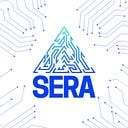SERA is a next-generation Enterprise Resource Planning system (ERP) that seamlessly integrates blockchain technology into a business’s operations. This integration allows businesses to benefit from the security, transparency, and immutability of distributed ledger technology. Additionally, SERA enables businesses to leverage decentralized finance (DeFi) through smart-contract-based functionality, such as automated payments and peer-to-peer lending. By combining the power of blockchain and DeFi, SERA promises to revolutionize the way businesses operate, improving efficiency, increasing transparency, and promoting financial inclusion.
So, lets first understand what ERP system is..
ERP (Enterprise Resource Planning) system is a software solution that integrates various business processes and functions into a centralized platform. It allows organizations to manage and streamline their operations, resources, and data effectively.
ERP integrates different departments such as finance, human resources, sales, procurement, manufacturing, and more, into one cohesive system. This integration eliminates data silos, enhances collaboration, and improves overall efficiency.
so how SERA ERP is different?
SERA is public Blockchain-integrated ERP that provides real-time visibility into your supply chain, ensuring traceability and compliance at every step. Transparent smart contracts automate processes, minimizing delays and optimizing supply chain efficiency.
SERA Unlock the potential of frictionless cross-border transactions with cryptocurrencies, enabling faster and cost-effective global payments. Say goodbye to lengthy bank processes and embrace the borderless nature of blockchain-powered payments.
SERA also Improve your customer experience by leveraging blockchain to verify product authenticity and provenance, building trust with your consumers and ensuring a competitive edge in the market.
ERP and DeFi?
Integrating ERP with DeFi (Decentralised Finance) brings exciting possibilities for businesses to leverage the benefits of blockchain-based financial services within their enterprise resource planning. Here’s how SERA ERP works with DeFi:
1. Payment Automation: SERA ERP utilises smart contracts to automate payment processes. When certain conditions are met (e.g., completion of a service, delivery of goods), smart contracts can trigger automatic payments, improving efficiency and reducing manual intervention.
2. Decentralized Payments: DeFi allows ERP systems to facilitate cross-border payments directly in cryptocurrencies, reducing the need for intermediaries and enabling faster, more cost-effective, and borderless transactions.
3. Decentralized Lending and Borrowing: SERA ERP integrates with DeFi lending platforms, enabling businesses to access decentralized loans or offer funds for lending without traditional banking intermediaries. This fosters financial inclusion and opens new avenues for capital management.
4. Supply Chain Finance: SERA ERP leverages DeFi solutions to offer supply chain financing options, improving cash flow for suppliers and buyers by using blockchain-based smart contracts to trigger financing based on predefined supply chain events.
5. Auditable and Transparent Financial Records: Transactions conducted on DeFi platforms are recorded on the blockchain, providing a transparent and auditable trail. Integrating DeFi with SERA ERP enhances financial record-keeping and compliance with regulatory requirements.
6. Tokenization of Assets: SERA ERP integrates with DeFi protocols that enable asset tokenization, allowing businesses to represent real-world assets (e.g., real estate, intellectual property) as digital tokens, facilitating fractional ownership and easier transfer of ownership.
7. Yield Farming and Staking: SERA ERP employs DeFi protocols to earn rewards through yield farming or staking cryptocurrencies, enhancing the organisation’s treasury management and optimizing returns on idle funds.
8. Automated Financial Reporting: SERA ERP streamlines financial reporting by automatically consolidating DeFi-related transactions, simplifying reconciliation and audit processes.
The integration of blockchain technologies into the enterprise sector for DeFi is dependent on its ability to become a part of ERP, which is the backbone of modern business. This integration can potentially enhance the speed, accuracy, and transparency of business operations, with ERP serving as the central hub for managing data and processes. Therefore, any blockchain solution must have the capability to integrate seamlessly with ERP systems to gain mass adoption and deliver value to businesses.
Follow us on Twitter to stay posted: SERA Project (@Project_SERA) / Twitter
